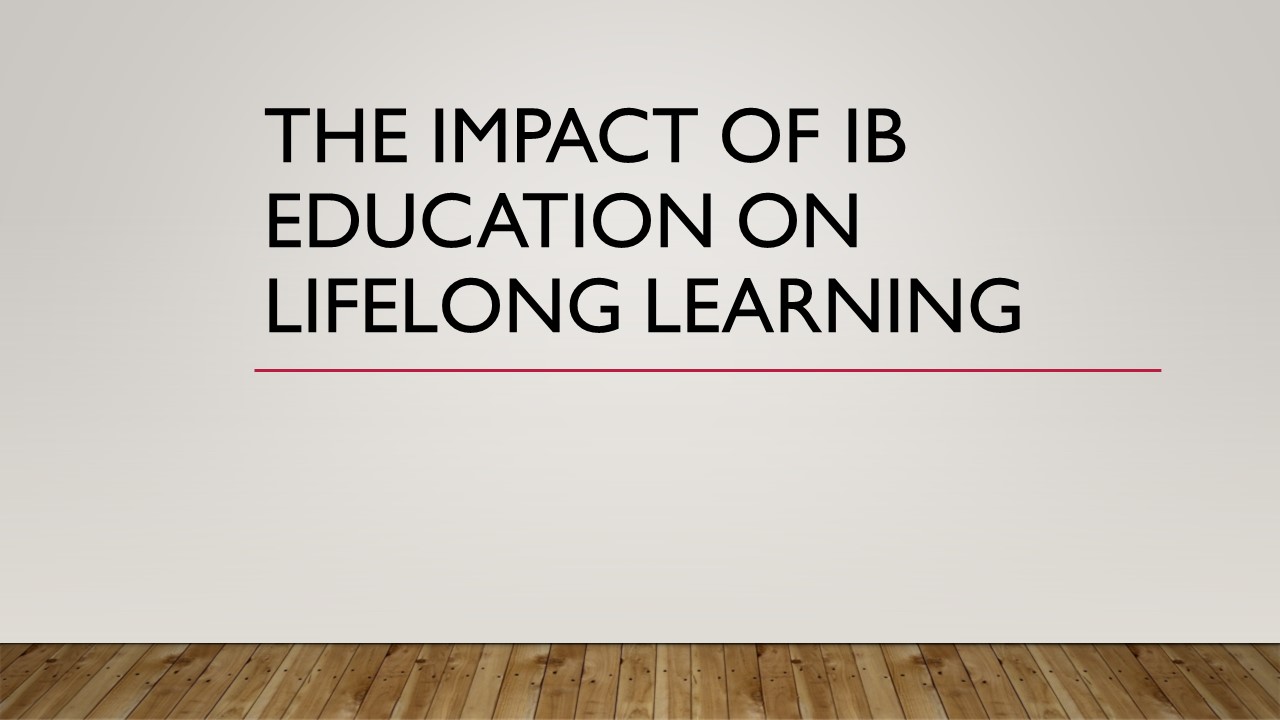The Impact of IB Education on Lifelong Learning - PowerPoint PPT Presentation
Title:
The Impact of IB Education on Lifelong Learning
Description:
Why IB has gained such widespread recognition for its rigorous academic standards and unique approach to education. Let us talk about the impact of IB Education on lifelong learning. – PowerPoint PPT presentation
Number of Views:5
Title: The Impact of IB Education on Lifelong Learning
1
The Impact of IB Education on Lifelong Learning
2
- IB has made a name for itself by providing a
challenging yet holistic approach to education
that goes beyond just academic success. Students
who complete the program develop a lifelong love
for learning and a strong commitment to personal
growth.
3
The Impact of IB Education on Lifelong Learning
4
Cultivating Critical Thinkers and Independent
Learners
- The IB curriculum delves deeper than rote
memorization and exam preparation. It encourages
students to become critical thinkers, capable of
analyzing complex information, forming their own
opinions, and engaging in meaningful discussions.
5
Developing Intercultural Understanding and Global
Citizenship
- The IB program fosters an appreciation for
diversity and encourages students to engage with
different cultures and perspectives. Through the
study of global issues, collaboration with
international peers, and the exploration of
various languages.
6
Nurturing a Growth Mindset and Resilience
- The IB program encourages a growth mindset,
emphasizing the importance of effort,
perseverance, and continuous learning. Students
are challenged to step outside their comfort
zones, tackle complex tasks, and learn from their
mistakes.
7
Promoting Self-Awareness and Personal Growth
- The IB program provides a framework for personal
development. Through the Theory of Knowledge
(TOK) course, students explore the nature of
knowledge and develop critical thinking skills.
The Creativity, Activity, Service (CAS) program
encourages students to engage in activities that
promote creativity and service to the community.
8
Preparing for Higher Education and Beyond
- The rigorous academic standards of the IB program
prepare students for success in higher education.
IB graduates are well-equipped to handle the
academic challenges of universities and
demonstrate strong research, critical thinking,
and communication skills.
9
The Evidence Speaks Volumes
- Research demonstrates the positive impact of IB
education on lifelong learning. Studies have
shown that IB graduates are more likely to - Pursue higher education
- Attain higher academic achievement at the
university - Demonstrate strong critical thinking and
communication skills
10
Conclusion
- Are you tired of struggling to keep up with the
pace of traditional classroom learning? Do you
want to explore new subjects and master them at
your own pace? Look no further than Litera
Centre's self-paced learning courses! Our courses
are tailored to fit your unique learning style
and schedule, so you can study whenever and
wherever you want.
11
FAQs 1. What makes IB education different from
other educational programs? IB education focuses
on developing the whole child, fostering critical
thinking, independent learning, and intercultural
understanding. It goes beyond traditional rote
memorization and encourages students to actively
engage in their learning.
12
- 2. How does IB education promote lifelong
learning? - Inquiry-based learning IB encourages students to
ask questions, investigate topics independently,
and form their own conclusions. - Global perspective The IB curriculum explores
global issues and encourages students to
understand and appreciate diverse cultures. - Personal growth IB emphasizes self-awareness,
reflection, and personal development. - Intercultural understanding By studying multiple
languages and perspectives, IB students develop
open-mindedness and respect for diversity.
13
- 3. How can parents and educators support the
development of lifelong learners? - Encourage inquiry and critical thinking Ask
open-ended questions, provide opportunities for
research and exploration, and encourage students
to defend their ideas. - Promote global awareness Expose students to
different cultures and perspectives through
travel, cultural experiences, and diverse reading
materials. - Foster creativity and passion Provide
opportunities for extracurricular activities,
encourage exploration of interests, and celebrate
student achievements.
14
- References
- https//eric.ed.gov/?idEJ1020316
- https//www.ibo.org/research/outcomes-research































